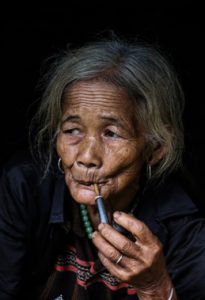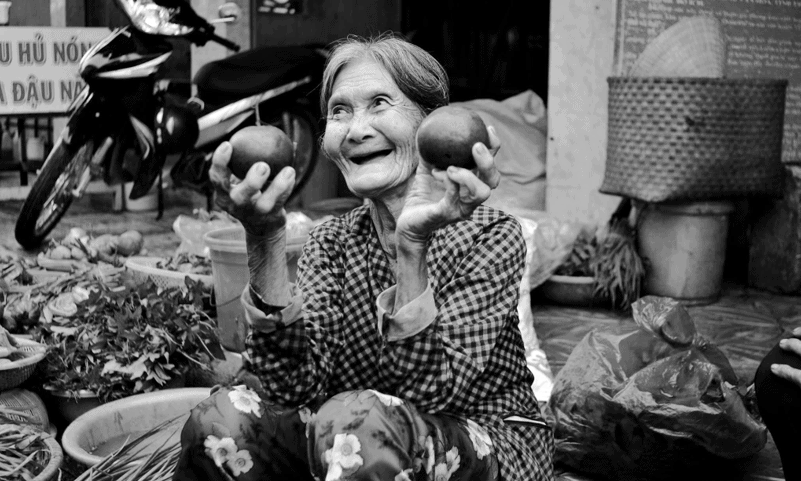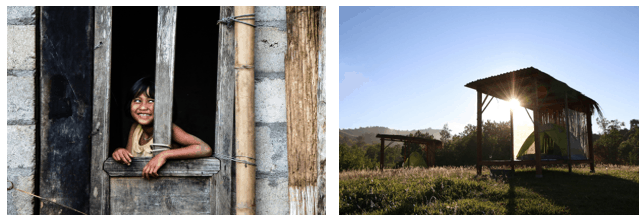- Even with a passion to nurture social entrepreneurship, seed investment and incubation may not always the right approach.
- Even though returns from project development were slower than as a seed investor, it enabled a strong portfolio of sustainable projects.
- A co-investment approach shows great potential for the multiplication of impact businesses.
Case Study: Partnership with Social Purpose Organisation, Dr. Noah
Challenges faced by passion-driven seed investors and incubator
Stepping foot into the bustling, motorbike filled streets of Vietnam may not initially appear to be the place of social entrepreneurship. While Saigon and Hanoi have a blossoming startup scene, Danang (located in central Vietnam) is just getting started. We came to Danang to be part of this transformation while mitigating the negative impacts that follow economic growth and industrialization.
We decided to set up Evergreen Labs in Danang, an early stage, seed investor and incubator for impact projects. Initial investments were made into companies active in small-scale hydroponics, natural cosmetics and match tea production.
Danang was clearly new to the scene of external investments and this mostly showed in the entrepreneurs lack of business knowledge, trust and appreciation in partnerships. We quickly realized that working as equity shareholders, although always minority holder, wasn’t the right approach for the given environment and culture.
Partnerships became tense, with the impression of sharing mechanisms to be much different than what we are accustomed to in the western world. Although we recouped all the investments made into the initial batch of companies, we decided this wasn’t the right approach; Evergreen Labs could not remain solely a seed investor and incubator if we expected decent returns and a growing portfolio in this environment.
Takeaway message: Partnerships mean different things in different countries.
Building a Portfolio of Sustainable and Investable Projects through Project Development & Company Building
After this realization, our business model evolved and we began developing our own internal projects. This mean that we built the companies, hired the teams to operate them and in some light became serial entrepreneurs. This model gave us full control of the project’s progress and over staffing and human resources.

As these were de novo projects, or developed from scratch, returns were much slower than we had as a seed investor, where returns were based on an already established and proven business. In order to keep sustainable operations, we began providing consulting work focused on our sector areas.
The community, A Hua, where we built accommodation options and tours for our community-based tourism project. They are Ta oi ethnic minority group located near the Lao border about 2 hours from Hue (Find out more here).
In some cases, our mandates shaped our projects and gave them the positive traction they needed to take off. For example, in early 2016, we became very interested in the community-based tourism sector. After some market research and reaching out to major stakeholders, we were mandated by the United Nations International Labour Organisation to develop and implement a community-based tourism network in Vietnam. The network has become one of our core projects and has recently been spun off into its own social enterprise.
Before we knew it, we had a portfolio of projects with sustainable business models that had potential to become investable.
Takeaway message: Learning by doing is the best way to make steady progress.
Crossing Borders – Adopting A Multi-Sector, Collaborative Framework
Currently, Evergreen Labs sits on nearly 2 years of hard, grassroot project development specifically in impact areas.
3 months ago, we incorporated our first spin-off social enterprise, a new legal form to Vietnam. By law, a minimum of 51% of profit must be reinvested in social causes. The social enterprise is new to the legal system of Vietnam, therefore, there are many unknowns in terms of tax and other benefits. This proves our changed business model was working in the Vietnamese environment and taking the project development role was more successful than only being an investor and incubator.
Evergreen Labs’s mission to bring sustainable, impact businesses to Southeast Asia has remained the redline throughout our growth and development. In 2018, a series of our projects will enter the market after initial proof-of-concept phases and hopefully become investable impact businesses.
We will also take on cross-border operating and market entry partner roles with influential startups who want to enter the Vietnamese market. First activities in this area have been initiated by the AVPN Conference 2017 and its co-investment approach shows great potential for the multiplication of impact businesses throughout the region.
Through the Deal Share Live segment at the AVPN Conference, we decided to become the local implementation partner for Deal Share Live participant, Dr. Noah, a startup from South Korea focused on producing sustainable, bamboo toothbrushes and products. They were looking for a Vietnamese partner to aid in setting up full production in Vietnam with the focus on employing and training bottom-of-the-pyramid workers.
Since both our companies shared similar impact missions and we could provide the services they required in a local partner we decided to form a joint venture in 2018. As a local partner, Evergreen Labs will provide market research, legal affairs, communication with local governments & other stakeholders, operation & training of factory workers and factory set up.
As such, Evergreen Labs allows for a comfortable entry into the intimidating and often chaotic Vietnamese market. Once fully established in Vietnam, Evergreen Labs plans to expand to other Southeast Asian countries in 2019.
Takeaway message: Business models need to be able to evolve, especially when dealing with developing countries and startups.




















